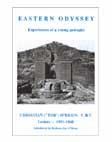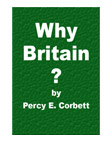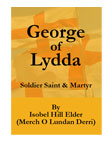RECOMMENDED
BOOK LIST
IN
ORDER OF OUR PRIORITY ASSESSMENT
PAGE
2
|
Genesis
of the Grail Kings
Author:
Laurence
Gardner
Following
the success of the Bloodline of the Holy Grail
the most often asked question was 'what made
this bloodline so important?' In tracing back the
ancestry of Jesus through King David to Adam and
Eve this new book opens up a huge area of our hidden
history.
Read
transcript of Genesis of the Grail Kings by Laurence
Gardner
|
|
|
|
Eastern
Odyssey - Experiences of a young geologist
Author:
Christian O'Brien
Introced by his wife Barbara Joy O'Brien
Christian
O'Brien wrote fascinating letters. He re-created
with a sure choice of words his immediate situation,
so that his correspondent felt with him, despite
the separation of time. The Eastern Odyssey is a
compilation of his letters home to his mother, from
a young man straight from Christ's College, Cambridge,
who was taken on by the Anglo-Iranian Oil Company,
now British Petroleum, as a geologist in 1936. Enthusiastic
and keen to do his best in his first challenging
job, exploring for oil in the wastes of Southern
Iran, these letters and linked photographs from
the BP archives, provide a fascinating insight into
the mind and background of an extraordinarily competent
and successful man.
£11.99
+
£2.00 surface
mailing US and Europe

 Using Paypal without an account Using Paypal without an account
|

Quality
Hardcover
|
|
|
Parallels
-
Mesoamerican
and Ancient Middle Eastern Traditions
Author:
Diane E. Wirth
The
long debated subject of isolationism and diffusionism
is brought into the open by comparing the many common
traditions of the Ancient Middle East and Mesoamerica.
Parallels
is fascinating, scholarly, reader-friendly, and
discusses the plausibility of foreigners from the
Middle East having an effect on Mesoamerica. "One
of the most puzzling problems for culture historians
and archaeologists has been how to account for shared
similarities in diverse parts of the world,"
said Brian M. Stross, professor of anthropology,
University of Texas at Austin. And Robert M. Schoch
of Boston University commented, "It is too
much for all of this to be dismissed as merely coincidence
and independent invention. . . . With this important
book, Diane E. Wirth is helping to rewrite not only
the history of pre-Columbian Mesoamerica, but the
history of the ancient Middle East as well."
More
Information
|
|
|
|
The
Shining Ones - An
Etymological Essay on the Amazigh Roots of Egyptian
Civilization
Author:
Helene
E Hagan
We
believe that this important book provides missing
information linking the origins of an Archaic Egypt
way beyond the confines of the Nile valley, to the
origins of the civilizations in the Mesopotamian
region, and the same down to earth Gods - Anu, Enlil
and Ninkharsag (Isis).-
Golden Age Project Comment
|
|
|
|
Why
Britain?
Author:
Percy
E. Corbett
An
examination of the evidence available indicates
that astronomer architects from Sumeria gave their
name to Somerset. Some five thousand years ago they
came to design and construct these enormous effigies,
portraying them in permanent form so that their
symbolism might be preserved in perpetuity for posterity
- An extract from a booklet issued by the Avalon
Research Foundation and published in The Universal
Voice in 1965.

More
Information
|
 PDF or eBook
PDF or eBook
WHY
BRITAIN?
by
Percy E. Corbett |
|
|
George
of Lydda - Soldier Saint & Martyr
Author:
Isobel
Hill Elder (Merch O Lundan Derri)
In
this work is told again the story of St. George
whose courageous defence of the principles of liberty
and freedom earned for him the unique title “Champion
Knight of Christendom.”
The
historic truth concerning our Patron Saint is here
presented in a concise form, disengaged from the
network of fable which gradually overlaid the story
of a soldier-saint in its progress through the centuries.
St
George is seen, not as a mere legendary figure,
but as a living man in conflict with the forces
of evil, and as the victorious defender of early
Christianity.
More
Information
|
 George
of Lydda
George
of Lydda
by Isobel Hill Elder |
|
|
Celt,
Druid and Culdee
Author:
Isobel
Hill Elder
It
has been said that the only excuse for writing a
book is that one has something to say which has
not been said before. That this claim cannot be
made on behalf of this little volume will be very
evident to the reader as he proceeds, since it is
a compilation from a variety of sources,
from which evidence has been brought together, to
support the belief that the civilization of the
early Britons was of a high standard, and that they
did not deserve that contempt with which they have
been treated by many historians, nor the odious
names of 'savages' and 'barbarians' by the supercilious
literati of Greece and Rome.
|
|
|
|
The
Exact Sciences in Antiquity
By
Otto Neugebauer, Dover Publications, NY, 2nd ed.
1969
This
book explains the level of learning and advance
of knowledge that was aquired by the ancient cultures
in Bablyon, Sumer, and Egypt. It gives a good overview
of the mathematics, and astronomy that was aquired
in these cultures, and the progression of this to
the more modern Greek and Roman cultures.
|
|
|
|
Ancient
Fragments
By
I.C. Cory, 1832
Wizard
Bookshelf, Minneapolis, 1975.
|
|
|
|
The
Farmers Instructions: A Sumerian Agriculture Manual
By Miguel Civil, Series Aula Orientalis
Supplimenta Vol 5, Barcelona 1994.
|
|
|
Before
Writing, Volume One: From Counting to Cuneiform
By
Denise Schmandt-Besserat
The
story of the Ark of the Covenant is a compelling
and powerful one. For over 4,000 years the Ark has
been at the centre of history. What it was used
for and how its purpose is now being understood
is recounted by Laurence in this, his fourth book.
|
|
|
|
History
Begins at Sumer
by
Samuel Noah Kramer
Doubleday
Anchor Books
NY
1959.
|
|
|
|
Treasures
of Darkenss - A History of Mesopotamian Religion
By
Thorkild Jacobsen, Harvard University Press
This
is a text of history of Mesopotamia in its own right.
Literature, religion, archaeology, sociology, psychology
-- all of these disciplines become intertwined in
Jacobsen's text as he looks at Sumerian society.
The
book is organised with an introduction, then according
to time divisions of fourth, third, and second millennia,
then concludes with an epilogue into the first millennium,
during which the Bible as we know it (and most ancient
history such as is commonly known occurred) came
to be.
|
|
|
|